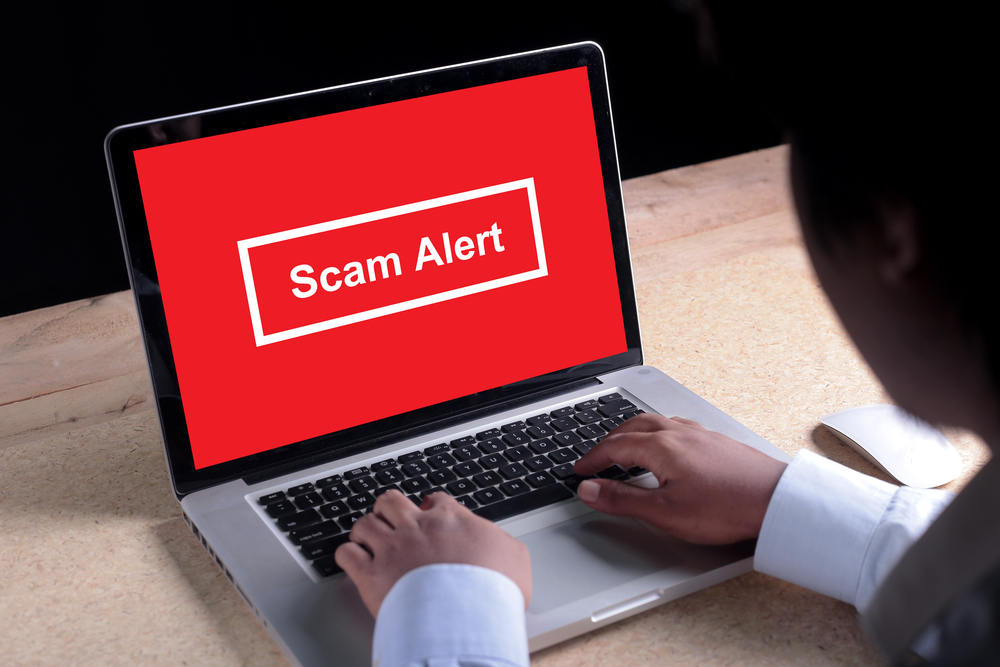If you are new to forex trading, it is super important to know how to spot a trustworthy broker. The forex market can be confusing, and unfortunately, there are brokers out there who may not have your best interests at heart. In this article, we will explore the signs of a scam broker, what makes a broker reliable, and how you can protect yourself.
Let’s get started!
Identifying Scams: Signs of a Fraudulent Broker
Here are some common red flags that may indicate a fraudulent forex broker:
| Common Red Flags | How to Recognize Them |
| 🚩 Promises of guaranteed profits | Be wary of brokers who claim you will make guaranteed profits or high returns with little to no risk. Trading involves risks, and no broker can guarantee profits. |
| 🚩 Lack of regulation | Check if the broker is regulated by reputable financial authorities such as the SEC, FCA, or ASIC. Avoid brokers with unclear or misleading regulatory claims. |
| 🚩 Poor customer reviews and feedback | Research customer reviews and feedback on independent platforms to see the broker’s reputation. Multiple negative reviews and unresolved complaints are warning signs. |
| 🚩 Unresponsive or unreliable customer support | Test the broker’s customer support by contacting them with inquiries or issues. A lack of response or unhelpful support staff may indicate poor service quality. |
Characteristics of a Legit Broker
In the forex market, reliability is paramount when choosing a broker. Here are key traits to look for in a legitimate and trustworthy broker:
✅ Regulation by reputable financial authorities: Ensure the broker is regulated by well-known regulatory bodies to ensure compliance with industry standards and protection of clients’ funds.
✅ Transparent fee structure and trading conditions: Look for brokers that provide clear and concise information about their fees, spreads, and trading conditions. Hidden fees or ambiguous terms may indicate dishonest practices.
✅ Secure and user-friendly trading platform: A reliable broker should offer a secure and easy-to-use trading platform with advanced features, robust security measures, and reliable execution speeds to enhance the trading experience.
✅ Positive reputation and track record in the industry: Research the broker’s reputation and track record in the forex market. Choose brokers with a solid history of satisfied clients and a positive reputation among traders.
By looking for these characteristics in a forex broker, traders can ensure they are partnering with a reliable and legitimate provider for their trading needs.
Steps to Ensure Your Broker is Legit
To verify the legitimacy of a forex broker, follow these steps:
✅ Research regulatory status and credentials: Check if the broker is regulated by reputable financial authorities such as the SEC, FCA, or ASIC. Verify the broker’s regulatory status and credentials on the regulatory body’s official website.
✅ Read reviews and testimonials: Look for reviews and testimonials from other traders to fully understand the broker’s reputation and reliability. Pay attention to both positive and negative feedback to get a balanced perspective.
✅ Test customer support responsiveness: Contact the broker’s customer support team with inquiries or concerns and assess their responsiveness and professionalism. Prompt and helpful customer support is indicative of a reliable broker.
✅ Evaluate the trading platform: Demo the broker’s trading platform to evaluate its reliability, functionality, and user-friendliness. Ensure the platform offers the features and tools you need for your trading strategy and that it operates smoothly without glitches.
By following these steps, traders can conduct thorough due diligence to ensure their chosen forex broker is legitimate and trustworthy, providing a secure and reliable trading environment.
Understanding the Role of Regulatory Authorities
In the forex market, regulatory authorities play a crucial role in overseeing brokers and ensuring fair and transparent trading practices. Understanding the importance of regulation can help traders make informed decisions and protect themselves from potential scams.
| Importance of Regulation | How it Protects Traders |
| 🤝 Ensures fair trading practices | Regulatory authorities set guidelines and standards that brokers must adhere to, promoting fair and transparent trading practices. |
| 🤝 Safeguards client funds | The regulation mandates that brokers segregate client funds from their operational funds, protecting traders’ funds in the event of broker insolvency. |
| 🤝 Provides recourse for disputes | Regulatory bodies offer mechanisms for traders to file complaints and seek resolution in case of disputes with brokers, providing a layer of protection for traders. |
Understanding the role of regulatory authorities empowers traders to prioritize regulated brokers and trade with confidence in a secure and regulated environment.
Ensuring a Secure Forex Trading Experience
Understanding the forex market requires careful consideration to ensure a secure and reliable trading experience. By identifying common red flags of fraudulent brokers and seeking out the characteristics of a legitimate broker, traders can protect themselves from potential scams and dishonest practices. Conducting thorough due diligence, verifying regulatory credentials, and evaluating customer support and trading platforms are essential steps in ensuring the legitimacy of a forex broker. Additionally, understanding the role of regulatory authorities and prioritizing regulated brokers further enhances trader protection and confidence in the forex market. By following these guidelines, traders can mitigate risks and trade with peace of mind, knowing that their investments are safeguarded in a secure and regulated trading environment.
